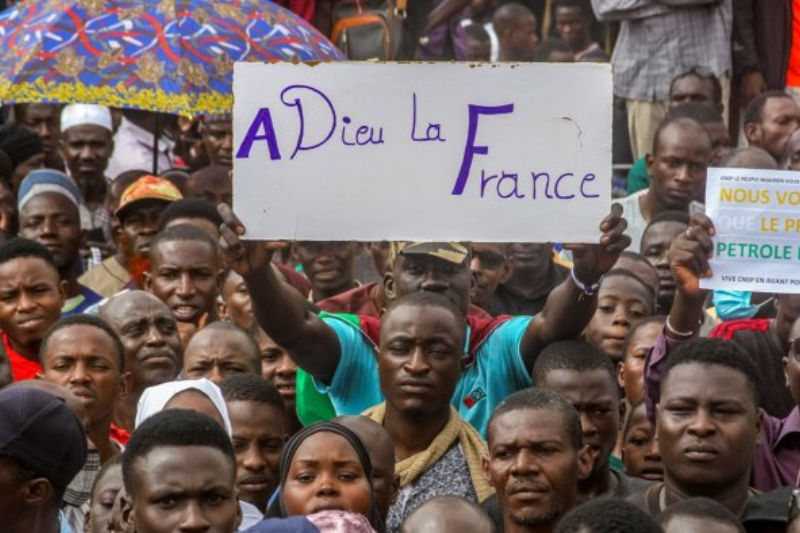This was the postcolonial scene in Niamey, the capital of Niger, this week, as hundreds of French nationals joined other EU citizens in scurrying away from the west African nation. Sections of the military had staged a coup against Mohamed Bazoum, Niger’s democratically elected president, just before 3 August, the country’s National Day, when it marked 63 years since gaining nominal independence from France in 1960. Crowds were chanting «Down with France» as they targeted the country’s embassy last weekend, smashing windows and setting fire to perimeter walls. A bullish statement from the Élysée Palace vowed that Emmanuel Macron «will not tolerate any attack against France and its interests».
Despite the illusion of complete withdrawal, France still has a garrison of 1,500 troops in Niger, together with an air force base servicing fighter jets and attack drones. All of this is a forceful reminder that, in spite of a long and bloody period of decolonisation, France has retained a quasi-empire in Africa by stealth, and it is under threat like never before. The current Niger crisis can thus be linked to former colonial relationships being restructured as Françafrique – a formidable neocolonial nexus across sub-Saharan Africa encompassing economic, political, security and cultural ties and alliances centred on the French language and values. It gives France monetary hegemony over several African states, including Niger.
The notion of France being the «Gendarme of Africa» now extends to it playing a vital role in the fight against terrorist insurgents such as al-Qaida in the vast Sahel region, which straddles around a dozen countries from Eritrea to Senegal, via Niger. France’s big problem, however, is that Nigeriens – like so many Africans – are rejecting Françafrique with as much fervour as their forebears came to reject the official French Empire. In this sense, France’s traditional dominance is disintegrating. Despite receiving up to $2bn a year in development assistance, Niger remains one of the poorest countries on earth, with a literacy rate of just 37%.
Keep reading
The EU was due to allocate €503m to Niger in the three years up to 2024, but the ongoing influence of France and its allies is still blamed for endemic problems, including mass youth unemployment. Niger is only the latest country in the region to undergo a coup, after Mali in 2020 and 2021 and Burkina Faso in 2022 – both former colonies that also gained independence from France in 1960. Juntas in Burkina Faso and Mali have already warned that any attempt to restore Bazoum in Niger via military intervention will be viewed as a declaration of war. Troops working for Wagner, the Russian mercenary group, are meanwhile operating within Niger’s neighbours, and have offered their support to the rebellious Nigeriens.
If – as seems likely – hatred of France intensifies, then there is every possibility of full-blown evacuations, to include French soldiers, as the key Françafrique nations of sub-Saharan Africa finally complete the decolonisation process. The most welcome outcome of all this would be for Niger and other African states on a similar path to choose self-government and a democratic future – but it is more probable that countries with even worse records for corruption, human rights abuses and all-round mismanagement will step in to fill the power vacuum.

